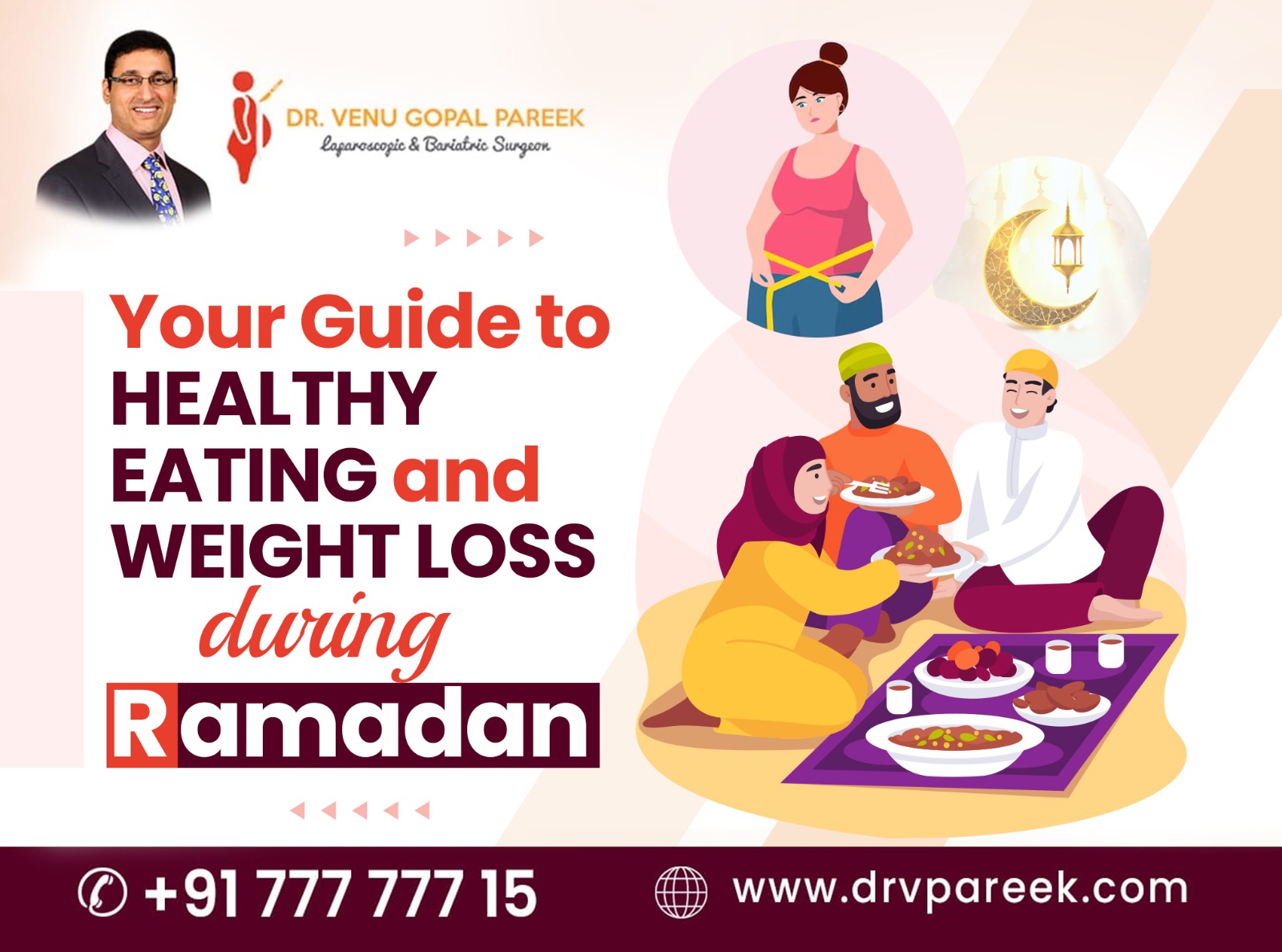
Your guide to healthy eating and weight loss during Ramadan
Ramadan is one of the biggest festivals for Muslims around the world. They almost celebrate it for a month, so the whole month is marked as sacred and important in the Islamic calendar. During these Ramadan days, almost every Muslim individual will be devoted to fasting from sunrise to sunset. It’s an opportunity for self-reflection and mostly focuses on spirituality and family. Many people believe that this holy month provides an unparalleled chance to reconnect with your body, inner soul, and faith.
Losing weight during the month of Ramadan
This Ramadan month could be a great opportunity, especially for people who are looking for a healthier lifestyle and want to lose weight. Some researchers say that it is possible to lose weight during Ramadan if you are overweight. However, weight loss is only a short-term success because maintaining the lost weight during Ramadan and afterwards might be hard. Most people start to gain weight and return to their pre-Ramadan measurements within 2 to 5 weeks after Ramadan.
However, one should remember that despite the fasting, not everyone loses weight during the holy month. Some surveys say that many people may even put on weight during Ramadan.
People gain weight as a result of too much eating during the suhoor (early hours of the morning) or the evening iftar. It’s common to feel hungry outside of Ramadan because of fasting, so the temptation to overeat is no surprise. During this Ramadan season, if you want to make a difference in managing your weight, you should pay attention to what you are eating, when you are eating, and how much you are eating.
How to Eat Well in Suhoor and Iftar: A Comprehensive Guide
Regular fasting is completely different from Ramadan fasting. Fasting during Ramadan strictly avoids eating and even drinking water from sunrise to sunset. Whereas with regular fasting, those who practice it as part of a weight loss journey can consume zero-calorie liquids and soft foods.
So it is important to plan for consuming healthy food with vitamins and nutrients, along with proper hydration, during the holy month. Eating nutritious food every day is very important, even during the Ramadan season. To stay healthy and lose weight during Ramadan, one can follow the below healthy eating habits.
Foods for a healthy and nutritious “suhoor”
Skip “suhoor” is not at all recommended if you want to be healthy and active during the day. This morning meal is very important for a good start to your day; it helps to power your body with the necessary energy to carry out your daily tasks without feeling tired or fatigued.
Choose foods wisely; whole foods and complex carbohydrates can provide a constant supply of energy throughout the day because they are broken down more slowly. So you may not feel hungry for longer. In contrast, if you choose to eat processed foods and simple carbohydrates, they will be digested and processed more quickly, which makes you feel hungry very soon.
Here are some helpful food choices, which include eggs, beans, lentils, chickpeas, oats, fruits, and vegetables. Also, try consuming dairy products with low fat, such as Greek yoghurt, and foods containing unsaturated fats. Salmon is also a good option.
Healthy food choices for “Iftar”
During Ramadan, breaking your fast thoughtfully and intentionally can have a major influence on your weight loss goals and healthy eating objectives. Right after “Maghrib azan,” many people start to eat a large iftar, which is not recommended because it may result in over-eating. It is better to eat smaller portions at certain intervals so that your body gets the proper time to digest the food. After a small iftar, you can have some healthy snacks if needed.
Dried fruits are rich in iron and antioxidants, which can also provide a natural sugar boost and energy, making them an excellent option for snacks. Consuming them along with some raw nuts will give you maximum benefits. On the other hand, some people prefer to break their fast by simply taking a glass of water along with a handful of dates to help them get used to eating.
Before coming back for the iftar, it’s a good idea to have a little bowl of warm soup. After the Taraweeh special prayers, one can have a small meal or snack.
Consider foods rich in protein (lean red meats (avoid frying), chicken, and fish), fibre (whole grains bread), vitamins, and minerals, especially during this Ramadan month because they can provide longer-lasting energy.
Tips for healthy Ramadan fasting and weight loss
- Start your Suhoor (pre-dawn meal) with a wholesome meal that contains complex carbohydrates, protein, and healthy fats.
- Break your fast (Iftar) with dates and a glass of water
- Avoid overeating during Iftar.
- Limit sugary and fried foods
- Drink plenty of water to stay hydrated. Drinking coconut water, herbal teas, and fruit juices is highly recommended to stay hydrated.
- Avoid caffeinated and sugary drinks because they make you dehydrated quickly.
- Avoid overeating salty and sweet foods
- Have a balanced meal with nutrients, proteins, whole grains, and healthy fats.
- Eat a lot of vegetables and fruits.
- Engage in light physical activity during the fasting hours to reserve your energy levels and promote weight loss.
- Getting adequate sleep is very important during Ramadan to support overall health and well-being.
Staying active at any time of the year is very important, especially during Ramadan. Minimal activities like walking for just 15 to 20 minutes a day may have positive effects on your circulation, digestion, energy levels, and mental health.
If you are fasting during Ramadan month and are afraid of becoming fat or want tips to lose weight or maintain a healthy weight, consult Dr. Venugopal Pareek, one of the best weight loss experts in Hyderabad. He has more than 17 years of experience as a weight loss surgeon in India and has helped thousands of people suffering from obesity and related complications.







